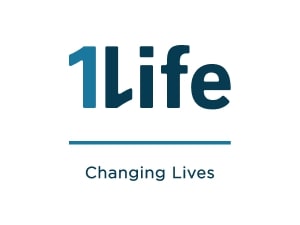 14 October 2020 - 1Life research shows that breast cancer deaths have increased by 20% over the past four months, which could indicate that not only may breast cancer patients have been avoiding going for treatment, but most definitely that more needs to be done to ensure stronger education around early detection, prevention, and treatment options.
14 October 2020 - 1Life research shows that breast cancer deaths have increased by 20% over the past four months, which could indicate that not only may breast cancer patients have been avoiding going for treatment, but most definitely that more needs to be done to ensure stronger education around early detection, prevention, and treatment options.
“As we commemorate Breast Cancer month, it needs to be said that not only are dread diseases increasing in South Africa, but that breast cancer is the most common cancer amongst females. As a community, we need to stand together to protect women, and their families, around the long-term health and financial impacts of such a disease – making proactive education around prevention and early detection a priority,” says Laurence Hillman, CEO at 1Life.
19.4 million women, aged 15 years and older, live at risk of being diagnosed of breast cancer – that’s 65% of the total female population. Similarly, statistics show that the worldwide cancer problem will reach 21 million new diagnoses and around 13 million deaths by 2030.
Says Dr Liana Roodt, founder, director and hands-on surgeon at Project Flamingo: "Wearing a pink ribbon or buying a pink product during October is not enough. Awareness is not enough. What we require now, more than ever, is action and advocacy. There is absolutely no question that early detection can improve long-term prognosis.”
Women need to understand the risk factors of breast cancer including a family history of breast cancer, being overweight, living a sedentary lifestyle, consuming alcohol, poor dietary habits and smoking, for example. However, all women are at risk and “women owe it to themselves to make their own health and wellbeing a priority,” says Roodt.
Immediate action is important in the fight against cancer – by individuals taking responsibility for their own health, as well as government, corporates and NGOs coming together to educate and take real action.
Consumers need to do regular self-examinations, go to the local clinic for examinations and ensure an annual mammogram is part of their health regime.
“In doing so, we are able to save more lives by catching the disease at the outset, and provide early treatment, as well as educate more women during these examinations to create a ripple effect within the community – advocacy that can be the difference between life and death,” says Roodt.
“This is ever more important today where it has become evident that the COVID-19 pandemic will in all likelihood claim more lives - not because of the viral infection per se, but because of the devastating impact it has had on our public health care resources, the drop in the number of people able to afford private medical care and people's reluctance or inability to attend their usual screening examinations. I am afraid that we will be dealing with the aftermath of this global pandemic for some time come,” continues Roodt.
Hillman shadows this sentiment indicating that; “As private healthcare becomes less affordable, the financial impact of contracting a dread disease increases 10 fold and places patients at not only a dire health risk without access to adequate care to fight the disease but, very crucially, diminishes their ability to survive financially.”
“While this aspect of dread disease is very often forgotten, it is key that consumers understand the financial impact of such diseases and that they plan ahead for these as best as possible – dread disease cover enables this and should be a crucial consideration around financial and health planning,” continues Hillman.
In fact, 1Life research indicates that only 4% of females have any form of dread disease cover – leaving South African women not only highly vulnerable to financial failure should they contract the disease but, crucially, leaving them unable to pay for the care they will need and continue to provide for their families as they may once have.
“It is now when stressors are much higher and lifestyles severely impacted that consumers need to relook what it means to be healthy and how they protect their families – this is where prevention through understanding and managing risk factors, as well as early detection and treatment is crucial. However, there is also a strong reality that many consumers may already not be able to afford treatment and so, these consumers should look for organisations that are supporting such patients by offering access to holistic, timely and compassionate cancer care – such as Project Flamingo,” concludes Hillman.